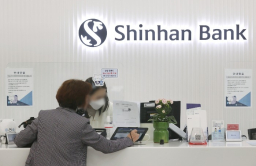-
KOSPI 2577.27 -2.21 -0.09%
-
KOSDAQ 722.52 -7.07 -0.97%
-
KOSPI200 341.49 +0.02 +0.01%
-
USD/KRW 1396 -2.00 0.14%
Korean bank branch closures accelerate as online deals grow
Banking & Finance
Korean bank branch closures accelerate as online deals grow
Five major domestic lenders closed more branches in the first three quarters of last year than in the entire 2020-2022 period
By
Feb 19, 2024 (Gmt+09:00)
2
Min read
News+

South Korean banks are accelerating moves to close branches given the growth in digital transactions and decline in offline customers but financial authorities are demanding that they maintain accessibility for people with difficulty in using online financial services.
Woori Bank, the lender of the country’s fourth-largest financial holding company Woori Financial Group, is set to shut 11 branches including one in the bustling neighborhood of Gangnam, Seoul, next month, according to industry sources on Sunday.
KB Kookmin Bank, the country’s largest lender, has recently closed three offices such as a currency exchange center in Seoul Station where many foreign tourists gather. Its rival Shinhan Bank shut four.
Five major domestic lenders – KB Kookmin, Shinhan, Hana Bank, Woori and NH Bank – closed 257 branches in the first three quarters of last year. They shut 237 offices in the 2020-2022 period.
“Many branches, once crowded in the Seoul metropolitan area, are suffering from a lack of customers. A branch with 10 staff handles only 30 customers a day,” said a senior vice president of a local bank.
Lenders are expected to further shut branches as growth in online transactions has decreased offline customers and caused branches to fail to meet break-even points.
DIGITAL TRANSACTIONS
NH, a specialized agricultural lender with the most offline customers, handled more than 60% of its product sales online last year, for example. Hana’s online personal credit loans made up 95.4% of the bank’s such lending in 2023.
Banks closed branches, given the trend, but faced opposition from local politicians and customers, who sought more accessibility.
“We need measures to ensure accessibility for the financially underserved, but we cannot just keep branches with low profits,” said another bank’s senior vice president.
Financial regulators have been pressuring lenders to maintain branches for customers who face difficulty in online transactions.
The authorities required banks to strengthen reviews before closing branches and prepare alternatives such as joint offices.
“It is necessary to make efforts to improve financial accessibility for the disadvantaged,” said Financial Supervisory Service Governor Lee Bokhyun.
Write to Jae-Won Park at wonderful@hankyung.com
Jongwoo Cheon edited this article.
More To Read
-
 Banking & FinanceShinhan Bank to completely scrap mobile, online balance transfer fees
Banking & FinanceShinhan Bank to completely scrap mobile, online balance transfer feesJan 02, 2023 (Gmt+09:00)


